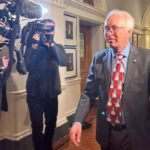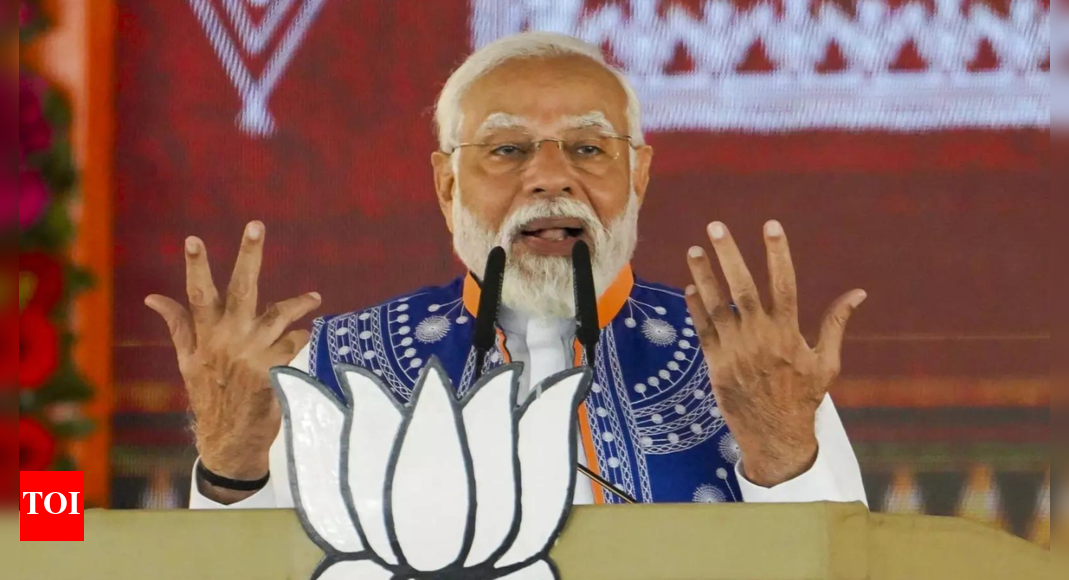NEW DELHI: Calling ‘Maha Kumbh‘a celebration of “unity in diversity”, Prime Minister Narendra Modi said on Sunday that the festival, being a “confluence of equality and harmony”, shows how traditions unite all of India, and cited several other examples similar. religious festivals along the banks of different rivers in the country.
‘Maha Kumbh’ is underway at ‘Sangam’ (confluence of Ganga, Yamuna and mythical Saraswati) in UP’s Prayagraj.
“People from all over India and the world congregate on the sands of the Sangam. There is no discrimination or caste anywhere in this tradition that has lasted for thousands of years… In the Kumbh, the rich and the poor come together as one. Everyone bathes in the Sangam, dine together in the ‘bhandaras’, receive ‘prasad’, that’s why the Kumbh is the Maha Kumbh of unity,” Modi said in his monthly radio program ‘Mann Ki Baat’, the first for this year.
He narrated how the ways of “adhering to beliefs are the same” from north to south, and cited examples of ‘Kumbh’ organized in Prayagraj, Ujjain, Nasik and Haridwar in the north, and ‘Pushkaram’ on the banks of the Godavari. , Krishna, Narmada and Kaveri in the south.
“Both festivals are related to our sacred rivers and their beliefs. Similarly, from Kumbakonam to Tirukkad-Yur, from Kood-Vasal to Tirucherai, there are many such temples whose traditions are connected with Kumbh,” he said.
Referring to ‘Ganga Sagar Mela‘, organized in West Bengal, said, “On the auspicious occasion of Sankranti, thousands of devotees from across the world took a dip in this fair. ‘Kumbh’, ‘Pushkaram’ and ‘Ganga Sagar Mela’ – these festivals of ours are festivals that enhance our social togetherness, harmony and unity.”
He also praised the efforts of indian scientists for his achievements and specifically mentioned his success in docking satellites to space, making India the fourth country to achieve this success.
Modi said scientists are making efforts to grow plants in space. “For this, ISRO scientists chose cowpea seeds. These, sent on December 30, germinated in space. “This is a very inspiring experiment that will pave the way for growing vegetables in space in the future,” he said.





